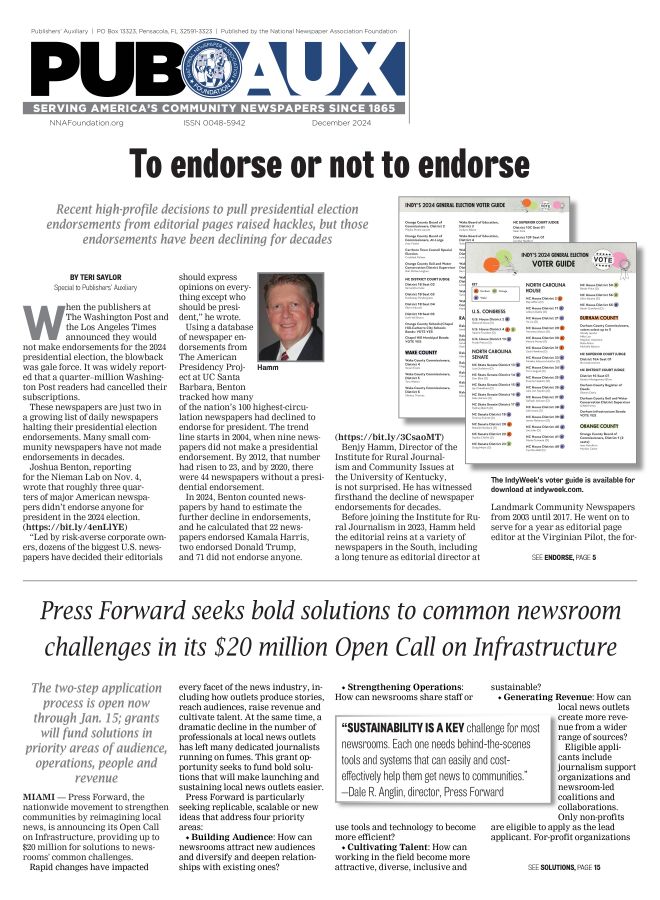What will keep unfounded Ebola reports from ‘going viral?’
Oct 16, 2014
By Gene Policinski
Inside the First Amendment
So how scared should we be about the worldwide Ebola virus crisis?
For nearly all of us, the answer to that question will come through what we see, hear and read in the news media and in the U.S. that places a unique burden on those free to print, broadcast or post stories as they wish about efforts to control the spread of the virus.
But how much can we rely on our news media?
From grim images and statistics about deaths in West Africa, to reports about flaws in attempts to isolate or track those exposed, news media accounts can inform or inflame, promote protection or pump up panic, and discount or display the inevitable crackpot theories on how and why the epidemic came to be.
Our news media is charged by its constitutional protections to serve as a “watchdog on government.” The challenge is when to bark, bite, growl or just keep watching.
Mike Cavender, executive director of the Radio Television Digital News Association, said “largely, what I have seen has been very responsible” reporting. While some have criticized as unnecessarily frightening the news reports that a Dallas hospital apparently botched some protocols on handling the first Ebola-stricken patient, who later died, “ ... not to have reported what happened at the hospital would have been irresponsible,” Cavender said.
The shift in the epidemic from global to “local” in the U.S. helps the news media focus more on real issues — health provider readiness and personal safety issues — according to Chris Peck, president of the American Society of News Editors, and editor of the Riverton (Wyo.) Ranger. “But there’s no question that reporting on a potential national disaster of any kind requires an extra degree of diligence” on the part of the news media, he said.
Journalists, Peck said, need to take a “fact-based look” at the nature of the health threat, and consider the “tenor and the tone” of reports to present a “calm, measured look at how we will respond in this country.”
The news media also should be less concerned “about the politics and politicization” that has crept into public discussion, he said. “This has more to do with reporting the response on the health front.”
Online news media may well face the biggest challenge, since their reporting is intertwined with comments, postings and reports from a vast audience — which can include hoaxers, profiteers and rumormongers.
Still, social media and online news “hasn’t created anything new. It’s just made it easier to see the conversations already there,” said Joshua Hatch, a journalist who chairs the legal committee of the Online News Association. Hatch cited persistent and pre-Internet-era claims that the 1969 NASA moon landing “is a fake ... those have been around since it happened.”
Even efforts to refute misinformation can backfire, Hatch said, citing a study that shows “by repeating the error and trying to knock it down, you give it credibility ... and people believe it more.”
Hatch does see a “learning curve” among established Internet operations such as Google, Facebook and Twitter on how to blunt or block hoaxes or deliberate attempts to spread fear and terror — such as the now near-immediate takedowns of ISIS’s postings of its beheadings of journalists and aid workers. But, Hatch noted, “the online community is so dynamic, there will be many (new companies) that will have to go through” such incidents a first time before developing their own internal sets of controls.
In a media-saturated world of 24/7 news, with the voracious talk-show appetite for chatter, we’re already seeing questions about what has been presented.
On Oct. 13, Fox News Channel’s Shepard Smith was critical of much of what he’s seen: “You would think 4 million people in America have Ebola, wouldn’t you?” he said.
Some interviews and news accounts have been slammed by critics as shallow or simply spreading misinformation. A CNN interview with an author of a 30-year old best-seller about a fictional Ebola outbreak raised concern that the virus might mutate to an easily-spread type — a theory discounted by virtually every scientist studying the disease.
A widely seen video of a doctor walking in a protective suit through Atlanta’s airport wearing a sign reading “CDC is lying” led to interviews in newspapers and a TV station — taking a publicity stunt to new levels.
Not all the news about the “new” news media is grim. Tom Risen, technology writer for the now-digital magazine U.S. News and World Report, wrote recently that “ ... mobile networks and the Internet are helping doctors reach and treat people who may have come in contact with the lethal disease.” Risen reported that “the continent’s growing mobile access already has played a key role in the fight to contain Ebola, as Nigeria seems to have tracked all known infections of the disease in its nation.”
The American Psychological Association is telling health officials not to spare the public needed information and specific details. An Oct. 8 post on its website said “ ... people want easy-to-comprehend information and access to more information if they want it. The news media will play a critical role if a health emergency occurs. Information flow to the public about very bad news should not be controlled in the name of trying to avoid an outbreak of mass panic.”
The APA post ends with this advice, which could be added right after the actual 45 words of the First Amendment: “The public should be armed with information.”
Gene Policinski is chief operating officer of the Newseum Institute and senior vice president of the Institute’s First Amendment Center. He can be reached at gpolicinski@newseum.org.







